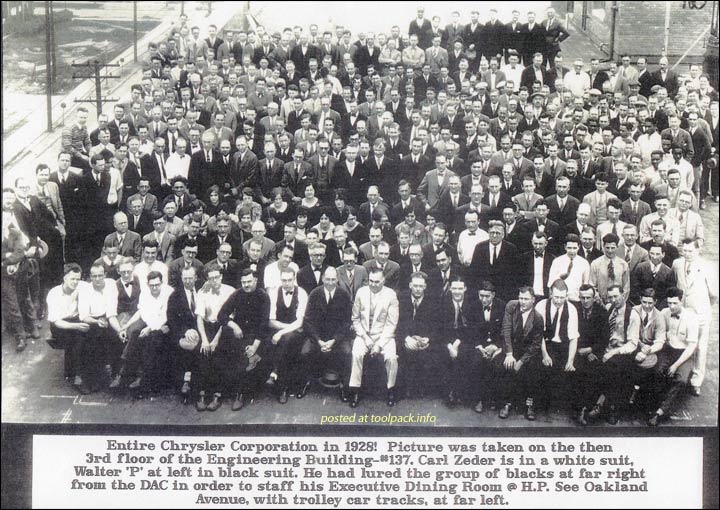
Every automaker has its own history, but how they approach it can be rather amusing.
First, of course, is Mercedes, the world’s oldest automaker, which not only claims to have invented the car, but later on claimed to have invented the truck, as well. So far, sliced bread is safe from Mercedes’ claims.

Do we have to point out that Mr. Cugnot was building cars and trucks for the French army before Daimler or Benz had been born? They were steam-powered, but some of them had four wheels, steering, and brakes. The trucks included cab-and-trailer variants. Cugnot was a busy man, exploring numerous options, trying to find the right combination.
Daimler’s “first car ever” was a powered tricycle. He was, that said, the first man to actually sell a car, and probably the first to make numerous identical cars. Daimler/Mercedes, then, was indeed the first car company. No need to make things up!
GM rarely talks about its founders; DuPont preferred executives to avoid being celebrities, and that ethic continued through much of the company’s history (besides which, early leaders might not have wanted to stay associated with Durant).
Ford’s history of itself is even more “cleaned” and adjusted than Ford’s Dearborn preserve of Americana. The legend-makers turned Henry Ford into a working-class hero who innovated, dreamed of helping others, and paid a generous salary. Never mind the Dodge Brothers, who reworked Ford’s car into something that could be produced and sold, lent him the capital to start out after Ford had been through two bankruptcies, and then produced much of the original car — it was Henry Ford alone who triumphed.
Then Henry Ford pretended to offer a high wage, and publicized it far and wide — to get long lines of job applicants. He needed them; he was brutal to his workers, and with little concern for safety, he burned through people quickly. To get that famed $5 per day, workers had to be the right religion, have the right size family, have worked with Ford for a good long time, go to church each Sunday, and have monitors visit their homes just to make sure. Precious few made their $5 a day, but having lines of hundreds or thousands of hopefuls at the door each day made it easier to abuse the rest.
That’s not even to mention Ford’s hatred of Jews; his writings reached Joseph Goebbels and Adolph Hitler in Germany, giving the Nazis the scapegoat they needed. Henry Ford was the only American to get the Nazi’s highest medal, and he deserved it; millions of lives ended because of his prejudices, and the money he spent on making them known.
Henry Ford was obsessed with history and tried to preserve a great deal of it, even recreating, quite well, Thomas Edison’s Menlo Park laboratories. The Ford company has kept his signature in the sign, and refers to Henry on a regular basis. However, much of the history you see in Ford’s company publications is fairly artificial, or at least as highly selective as what was placed in Ford’s Dearborn preserve. (Various organizations with Ford’s name, including Ford’s “nonsectarian” archives and the Ford Foundation, follow Henry Ford’s reputation rather than the man himself; he did build the hospital that bears his name.)
Chrysler’s treatment of history reflects its own turbulent past. The Maxwell car company had been churning through names and forms for years when Walter Chrysler took charge. The first Chrysler car was produced in 1924; in 1925, a new holding company, Chrysler Corporation, took hold of the old Maxwell, and oddly that’s the date Chrysler claims to have been born. Yes, the same Chrysler that was absorbed by Daimler, moved to Cerberus, and then moved into Fiat — that Chrysler still uses 1925 as its founding date rather than Maxwell’s 1904 or the Chrysler car’s 1924.
Chrysler itself tends to ignore Maxwell, and when they refer to company history, aside from visible elements such as the Hemi, they tend to be fairly vague and flexible. Chrysler, alone of the major American automakers, actually bulldozed its headquarters and related buildings in the 1990s. It has consistently failed to have a sustained corporate effort to preserve papers (though it does keep cars), was the last to have a museum, and was then the first to close its museum. Chrysler almost seems to dislike itself; there is a New Chrysler on a regular basis, and older cars have been disparaged by company leaders from Lee Iacocca to Sergio Marchionne. It’s interesting, because in some ways Chrysler has the least to be shameful of — it never worked with the Nazis, had an inspirational record in World War II, had a major hand in the moon rockets, developed the Abrams tank (among many others), and was for years the most innovative automaker. Yet, oddly, the company only ever seems to boast of the history of the Jeep (which was created by Bantam) and the Hemi V8.
Do you have stories of other automakers and how they treat their own past? Is there anything to be learned? Let us know in the comments!

David Zatz has been writing about cars and trucks since the early 1990s, including books on the Dodge Viper, classic Jeeps, and Chrysler minivans. He also writes on organizational development and business at toolpack.com and covers Mac statistics software at macstats.org. David has been quoted by the New York Times, the Daily Telegraph, the Detroit News, and USA Today.

Leave a Reply